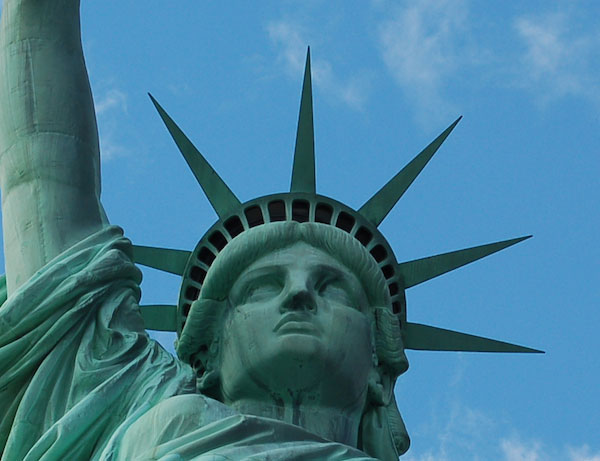Hysteria and 7th Century Literature

The recently uploaded Innocence of Muslims stood no chance of being contained before its echoes pulsated across the Muslim world and its reactions warranted a spot on the itineraries of America’s leaders. Its creator still unconfirmed, the tawdry pseudo-film was first hosted by YouTube in mid-July in the form of a 14-minute trailer. In the intervening months, the 74 minute full-length film was released to the web and then translated, re-edited, redistributed, and disseminated to Islamic groups the world over. In it are crude depictions of Islam’s founder, Muhammad, and other vile drivel centered around the Islamic faith. It is a squalid and brazenly propagandistic piece of amateurish videowork to be sure, but the reactionary measures proliferated throughout the Muslim states have shown just how dangerous certain beliefs can be.
Backlash erupted eastward in the form of enraged protests and a number of attacks on U.S. consulates and embassies, leaving over 30 dead in seven countries. The tolling of the fallout continues, as demonstrations have been reported in Egypt, Libya, Pakistan, India, Malaysia, Sudan, Indonesia, Tunisia, Yemen, Iraq, Jordan, Kashmir, Lebanon and Iran. Last week four Americans were killed during the assault on the US embassy in Benghazi, Libya, with another 14 found dead in riots across Libya and Yemen. Over 200 people have been injured outside the US embassy in Cairo. A 5,000-strong cohort set fire to the US, British and German embassies in Sudan last Friday. Stone-throwing protesters rushed the US embassy in Tunisia on the same day. Unrest has waxed and waned for the past few months as security forces defending Western embassies attempt to seize control of the situation.
The smoke is far from settled and, as is often the case in crises fueled in part by the internet, Google has been pulled into the fray. At the behest of national governments, Mountain View has had to navigate the treacherous waters of free speech and the amelioration of anarchy. As of this writing, Google has not kowtowed to the likely illimitable number of takedown requests. They have denied a complete removal of the various clips but have blocked viewing of the video for certain countries, including Indonesia, home to the world’s largest Muslim population, as well as India and Malaysia. Of course, this has the effectiveness of nailing jello to a brick wall, as inevitably some copies will slide past the injunction when they are uploaded by other users. Sensing Google’s unwillingness to act, some countries are taking matters into their own hands. Sudan has actually blocked all access to YouTube after their repeated takedown requests were ignored.
If this faith-driven bedlam tells us anything, it tells us the power of beliefs to shape actions. The “lever” metaphor is an apt one. It is the idea that our personal beliefs act as a lever to a roller coaster, which propel us to act in ways consistent with those beliefs. What we truly believe is what truly drives us. In the wake of violent pieties committed by the violently pious, we are pushed to make an honest assessment of the beliefs so crowned by the men and women of faith contributing to this virulent maelstrom.
It is a popular tactic, by liberal and conservative constituencies alike, to rush to the aid of the insurgents by arguing that religious extremism arises principally out of socioeconomic pressures. These conciliators contend that economic and personal despair provide the soil for extremism, terrorism and all forms of misguided activism, and that we should focus our efforts there. This line of defense maintains that conflicts like the Israeli-Palestinian struggle and those endemic to the majority of the Middle Eastern world are primarily economic and secondarily religious.
Such an appraisal is needlessly hasty. You can’t start a fire without a flame, and here it seems the pacifiers have committed a category error. If poverty were the catalyst for organized violence, then as the poorest continent Africa should be the terrorist hub of the developing world, yet terrorism and civil unrest are highest in predominantly Islamic states across Western Asia, leaving behind a pattern that in no way tracks with poverty level. Rather, our current global crisis is home to a heterogeneous group, ranging from non-developed countries to members of G-20 major economies such as Indonesia and India.
The conversation, albeit nuanced, has been misframed. It is not a matter of economic security, but a matter of belief. Certain beliefs central to Islam are more prone to give rise to volatile misconduct compared with the teachings of other religions, irrespective of culture or economic standing. These are not clashes of civilizations. These are not culturally misunderstood anomalies. These are people whose actions are premised upon steadfast beliefs in 7th century literature. And in a nod of unwavering loyalty to their prophetic vanguard, they have once again shown the world just how religious they are.
We humans are a diverse people with an equally diverse range of beliefs. Many of these may be deeply held and irrational, though relatively benign to the human condition. Astrology, as deluded a belief though it is, is unlikely to lead to proscriptive bigotry and manifestations of violence in the face of nonconformists and iconoclastic depictions. Various sects of the Islamic faith, however, are perfectly consistent with their beliefs by conducting themselves in this way. The hadith strictly forbids visual depictions of Muhammad—a 7th century illiterate war campaigner who many Muslims believe was dictated the last message from God and elevate to semi-divine status—and its source text, the Quran, explicitly authorizes the use of violence to silence infidels and apostates. The slaying of unbelievers recurs so steadily throughout its suras that it is pedestaled as a central theme. A belief, therefore, should only invite concern when its irrationality has been shown to compromise the freedoms and well-being of others. As we’ve seen in a collection of lifetimes, some beliefs have seismic consequences if left unchallenged.
The opportunity to respond with courage to the Islamic protestations should be seized at every turn. In a piece yesterday titled “On the Freedom to Defend An Imaginary God,” Sam Harris delivered a resolute condemnation of both Islamic beliefs and the nation states who’ve relucted to do the same. He notes how the Obama administration chastised the contents of the video in question and then requested that Google take down the “Innocence of Muslims” clips from its servers. Worse, the White House has now released apology ads in Pakistan, with President Obama and Hillary Clinton pandering to the expectations of the demonstrators.
Harris exhorts that the proper diplomatic response is not only to inveigh against the violence but to emphasize that irrational belief has no jurisdiction over our freedom of speech. When met with salvos targeting Constitutional freedoms, and especially when accompanied by threats of violence and death, the only proper reaction is summary impugnment, not callow diffidence. With necessary drum-banging, Harris contends that we must step up our resolve in combating delusion.
Of course, this won’t come easily. As Baghdad businessman Hassan Rahim told Huffington Post on Thursday, “The Muslims are taught to die for God, not to live for God, so I think that the chances of moderation are limited in our Islamic world. The West should accept the fact that Muslims might tolerate a specific level of criticism on Islam, but not mockery or blasphemy.”
This statement smacks both of implicit advocacy of the barbarism being carried out in the name of Islam and a thinly veiled threat that we should expect more to come if we do not succumb to international pressures. In virtually no other sphere of influence do mockery and blasphemy grant impunity for murder and extreme retaliatory force. Releasing apology ads, as our current administration has done, only serves to justify the actions of Islamic exponents and could quite possibly intensify their demonstrations. What we need most are intrepid leaders willing to publicly disavow all infringements on the freedom of speech and to expose fundamentalist Islam for what it is: a breach of reason and a license to deviate from moral norms.
As Harris closes:
Feature image via samharris.org



Comments